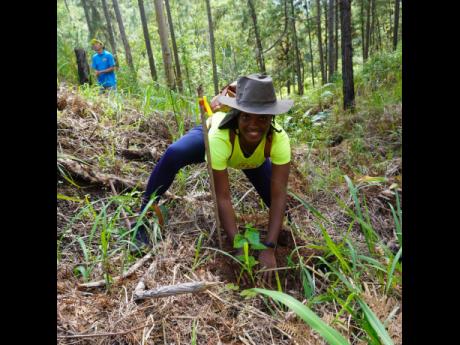Forests essential to everyone’s well-being, FAO’s Wu
INNOVATION IS crucial to preserving the world’s forests, according to Zhimin Wu, director of the Food and Agriculture Organization’s (FAO) forestry division.
On March 21, the world observed International Day of Forests under the theme “Forests and Innovation: New Solutions for a Better World”.
Speaking at the event, Wu pointed out that as 100 million hectares are lost annually to deforestation, 35 million by insects, pests, and diseases and up to 70 million hectares lost to wildfires, innovative approaches were imperative to help build solutions for collaborative efforts to address global forest concerns.
For everyone’s well-being, forests are essential. It is expected that these innovative needs will address global issues such as deforestation, forest degradation, climate change, and biodiversity loss.
Wu stated that the FAO was well aware of the need for innovation and that a new section on conservation, restoration, and sustainable production “while leaving no one behind” would be outlined in the organisation’s forestry road map 2024–31: From Vision to Action towards 2031, which would be unveiled during the 27th session of the FAO Committee on Forestry (COFO 27) in July.
He said further that the government of the United Kingdom (UK) has been a key collaborator of FAO, especially in the field of forestry.
Graham Stuart, minister of energy, security and net-zero from the UK, remarked that “stopping deforestation requires global coordination”, along with smaller actions in saving one tree at a time that will make the difference in local communities.
‘Key to our future‘
He continued that the forests represented “a legacy of our past but also a key to our future” and that there needed to be a sense of urgency to halt global deforestation.
It is for this reason, among others, that the UK provided £24.5 million to establish the Aim4Forests programme launched in 2023, Stuart said.
Since then, he went on, Aim4Forests has worked with 11 countries to provide tools and data that may aid in forest protection through partnerships with the top research institutions and universities in the UK.
To help Zambia extend its climate smart agriculture practices and address the root causes of deforestation, he stated that an additional £6 million had been allocated to the country’s integrated forest landscape plan.
“The UK is proud to share its innovative technology and provide climate finance to projects that need it so that together, we can end deforestation,” he said.
Wu went on to say that FAO forestry helped to improve forest data through the creation of its Open Forest initiative, which has impacted over 200,000 people from 196 nations.
He noted that Open Forest is currently being used by 90 per cent of the forest submissions to UNFC (United Nations Framework Classification).
The improved forest data, he said, has resulted in positive actions on the ground, much of which has been possible through partnership with Google.
The FAO-Google partnership began in 2015 with FAO partners on the ground, with Google providing the necessary technology innovations.
A new memorandum of understanding (MoU) was signed between both organisations and a mobile application launched under the Open Forest initiative called “Ground”, which was jointly developed over a period of two years by FAO and Google.
“This app has been specifically designed to empower indigenous people, small holders, and local communities in the actions on the ground,” Wu said.
He acknowledged that there was still more work needed to be done.
“There is a need to scale up innovation to hold deforestation and catalyse progress under the UN (United Nations) decade for ecosystem restoration. We must develop early warning systems for fires and also continue to empower indigenous people as forest custodians,” Wu added.
Wu went on to say that increasing the role of wood and forest products is another important area that FAO is firmly supporting. This would entail developing more materials derived from forests and trees to replace many commonplace items such as plastics, building materials, fabrics, medicines, and many others, with sustainable forest products.

